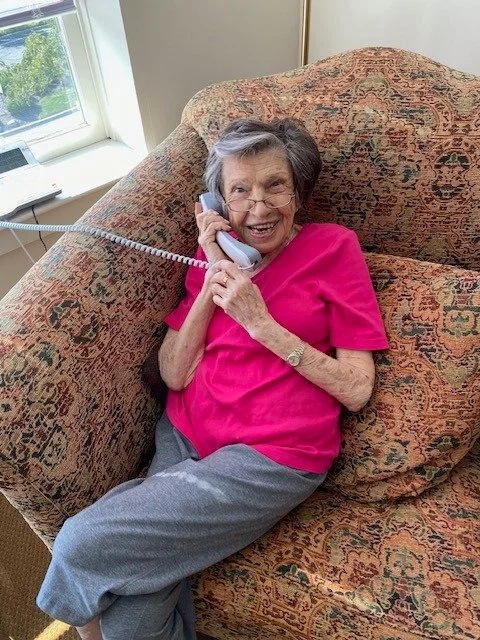Mothers Day
Little did I know last Mothers Day would be a last Mothers Day. A year later, I face my first such Day without my Mother.
Some knew her as Helen, others as Bossie. Her Yiddish name was Hinda Basha. It became Helen for those who knew her first as American, Bossie for mishbucha. My brother’s Batchelder Street buddies gave her the nickname ‘Hurricane Helen.’ Her brother, my Uncle Milt, dubbed her ‘The Chopped Liver Queen.’ Regardless of how you knew her, you knew her to be one of a kind.
She was actually last of her kind.
The last of the family to be born in Russia, in a village called Kalenkovich. The last to cook certain old world foods in the tradition of her mother. The last native speaker of Yiddish in our home.
She was also the first of her kind.
The first of her family to speak English. The first to attend public school in America. The first to work in New York City for a legal firm where she honed her keen writing skills and sharp legal mind.
Born before the Great Depression and deeply affected by it, she lived in 11 decades from the Roaring Twenties through the Twenty-tens, passing away a mere month and a half before her centennial birthday. She lived to the exact same age as her own mother.
Truth be told, my mother never wanted to be 100.
She shuddered at the thought of the attention to be lavished on her at her assisted living residence.
“They make such a fuss,” she would remark with distaste. “Who needs that?”
Well, it turns out, not her.
Still, she spoiled us into thinking she would live forever.
Despite her frail frame, her lifelong lack of exercise, her litany of maladies too lengthy to list, she proved to be inexplicably bionic. Sustaining fall after fall after fall without incurring injury, she survived surgeries, stents, and stumbles right up to the morning of her very last day.
On the night she passed, my wife fired up a playlist of Big Band songs from that Golden Era my parents loved so well. When Glenn Miller’s Moonlight Serenade came on, I could see them dancing to that swing ballad as if it were the year they met.
My brother has memories of our mother that pre-date my existence. He remembers hearing how she feared having another child after his difficult birth. She ultimately consulted her gynecologist about having a second.
“Physically,” declared Dr. Horowitz, “you're able.”
“Mentally,” he added, “I’m not so sure.”
Even before my conception, there were doubts about her endurance.
Half a century later, after spending several hours patiently listening to my mother tell tales of triumph and travail over various ailments, my cousin declares the nonagenarian to be a real warrior.
“That’s true,” she acknowledges.
“I worry about my children, I worry about my grandchildren.”
She worries about everyone and everything.
Overhearing her response, I explain: “He said ‘warrior,’ not ‘worrier.’”
By the time she reached her 97th birthday, she insisted, “Nobody should live this long.”
She became blind in one eye, compromising her abilities. She could no longer see to solve the New York Post WordSearch puzzles that helped keep her mind sharp.
Yet she went on.
She lived to her hundredth year but slipped out before the party.
She would be pleased to know we were able to get back the deposit for the luncheon at the restaurant where a celebration was planned.
Parsing through the treasures she saved over the years – the receipt from the Casablanca hotel in Miami Beach where she spent her honeymoon, the bill for my delivery from Maimonides Hospital in Brooklyn – I find a rubber-banded batch of handmade cards containing my handwritten poems presented on Mothers Days throughout the years.
Perhaps this blog post is a posthumous installment in that series.
